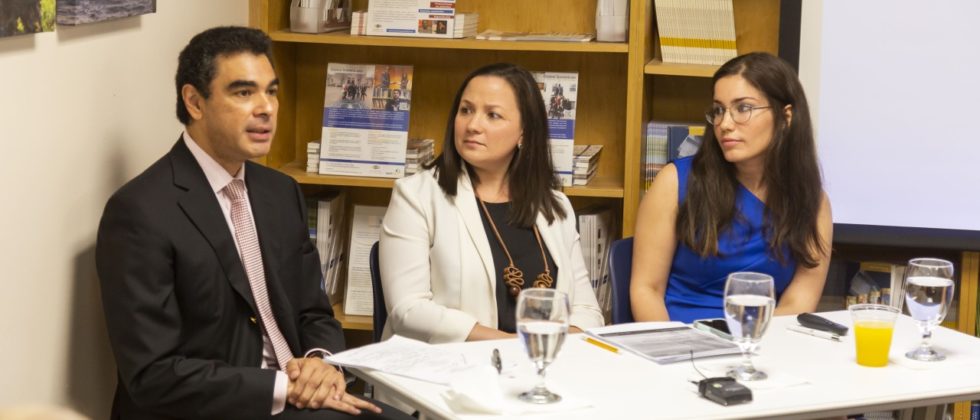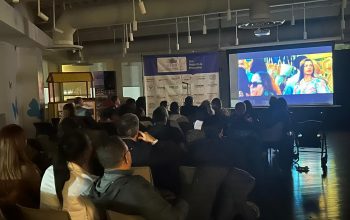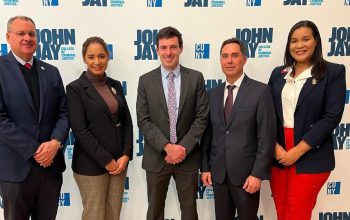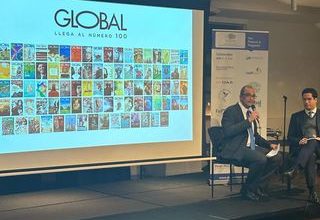news
Experts Discussed High-Skill Emigration and Development in Washington, D.C.
May 15, 2019
Washington, DC – High-Skill Emigration, also called “Brain Drain”, is among the most debated migration policy issues. While origin countries lose talent, many destination countries gain highly skilled human capital. Although many studies of this issue have focused on the relationship between labor markets and motivation to migrate, much less research has been done on the relationship between a country’s governance and emigration, especially of the highly-skilled.
Global Foundation for Democracy and Development (GFDD) hosted a panel discussion in its Washington, D.C. office, where Ms. Anniete Cohn-Lois from Georgetown University, along with Mr. Manuel Orozco, Director of Migration, Remittances and Development of the Inter-American Dialogue as discussant, presented research findings using data from 18 Latin-American countries to determine whether the use of bribes to access public services and perception of government effectiveness have any impact on people’s willingness to stay or leave. Maria Victoria Abreu, GFDD International Affairs and Socioeconomic Development Program Manager, moderated the discussion.
Cohn-Lois shared her findings with the audience, noting that “a highly skilled individual’s willingness to leave his or her country is positively correlated with its government performance”. Although the research analyses 18 countries, she used the Dominican Republic as a country of reference and said: “in the Dominican Republic, the higher the socioeconomic status, the more likely they are willing to leave”. In addition, she mentioned that in the DR, for everyone, regardless of being skilled or unskilled, having paid a bribe, being concerned about becoming unemployed in the next year, having been victim of a crime, and also being at a very young stage in your life, influenced the likelihood of wanting to leave the home country”.
The conclusion of Cohn-Lois investigation led her to propose some policy recommendations focused on the following: first on addressing crime because as shown in the data, crime persists and still is one of the main issues that drives people away but also specifically highly skilled people; and second is corruption because corruption interaction, a type of corruption that’s usually at low level, so like to get access to basic public services, is still prevalent and is important in some cases, depending on the country that we are looking at. Also, she noticed the imbalance that is still persistent in Latin America between the market salaries versus the cost of living. “Basically, Latin America is still today the most unequal region in the world and even though we know this since many decades ago, the imbalance between what people earn versus what the cost of living is, is huge.” She also proposes addressing and increasing return migration programs.
Following Cohn-Lois presentation, Dr. Orozco congratulated her work and noted his methodological recommendations and academic inputs, including that the term “brain drain” is obsolete and we should move away from it. He mentioned that the trend of international labor mobility has grown since 2009 and is connected to state fragility. “There are three important metrics to consider when thinking of being competitive in the global world: labor portability, labor flexibility, and labor connectivity.”
Orozco agreed that the issue of living standards is important to look at. “There is an income threshold in each country [of what it takes for people to want to move].”
When talking about corruption and clientelism, he argued that “clientelism per se is not wrong because it’s a cultural practice; after all it comes from patronage relations from colonialism. The challenging issue with it is when it transgresses the rule of law [which is what is happening in Latin America].” He finish his remarks stating that “a challenge in Latin America is how to reconcile political culture with democratic political culture.”
Both Cohn-Lois and Orozco agreed that when looking at the highly skilled across the region, having been a victim of a crime increases the likelihood of wanting to leave a country, and then working on increasing citizen security is really important.
Participants included diplomats, international organizations and think tank representatives, students and academics.
















